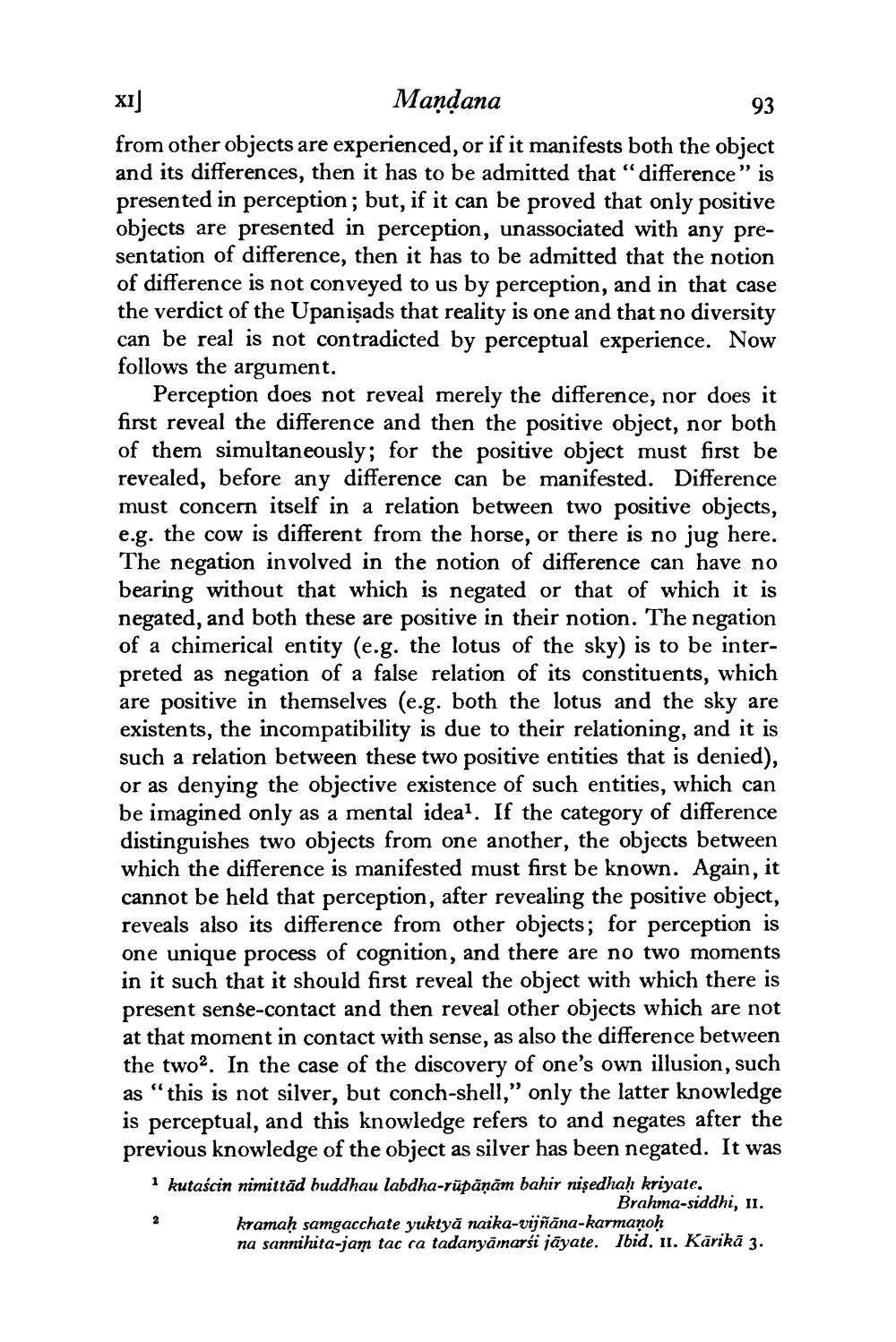________________
XI] Mandana
93 from other objects are experienced, or if it manifests both the object and its differences, then it has to be admitted that “difference" is presented in perception; but, if it can be proved that only positive objects are presented in perception, unassociated with any presentation of difference, then it has to be admitted that the notion of difference is not conveyed to us by perception, and in that case the verdict of the Upanişads that reality is one and that no diversity can be real is not contradicted by perceptual experience. Now follows the argument.
Perception does not reveal merely the difference, nor does it first reveal the difference and then the positive object, nor both of them simultaneously; for the positive object must first be revealed, before any difference can be manifested. Difference must concern itself in a relation between two positive objects, e.g. the cow is different from the horse, or there is no jug here. The negation involved in the notion of difference can have no bearing without that which is negated or that of which it is negated, and both these are positive in their notion. The negation of a chimerical entity (e.g. the lotus of the sky) is to be interpreted as negation of a false relation of its constituents, which are positive in themselves (e.g. both the lotus and the sky are existents, the incompatibility is due to their relationing, and it is such a relation between these two positive entities that is denied), or as denying the objective existence of such entities, which can be imagined only as a mental ideal. If the category of difference distinguishes two objects from one another, the objects between which the difference is manifested must first be known. Again, it cannot be held that perception, after revealing the positive object, reveals also its difference from other objects; for perception is one unique process of cognition, and there are no two moments in it such that it should first reveal the object with which there is present sense-contact and then reveal other objects which are not at that moment in contact with sense, as also the difference between the two. In the case of the discovery of one's own illusion, such as "this is not silver, but conch-shell,” only the latter knowledge is perceptual, and this knowledge refers to and negates after the previous knowledge of the object as silver has been negated. It was 1 kutaścin nimittād buddhau labdha-rūpāņām bahir nişedhaḥ kriyate.
Brahma-siddhi, II. kramah samgacchate yuktyā naika-vijñāna-karmanoh na sannihita-jam tac ca tadanyamarsi jāyate. Ibid. II. Kārikā 3.




